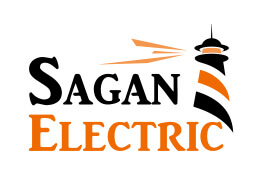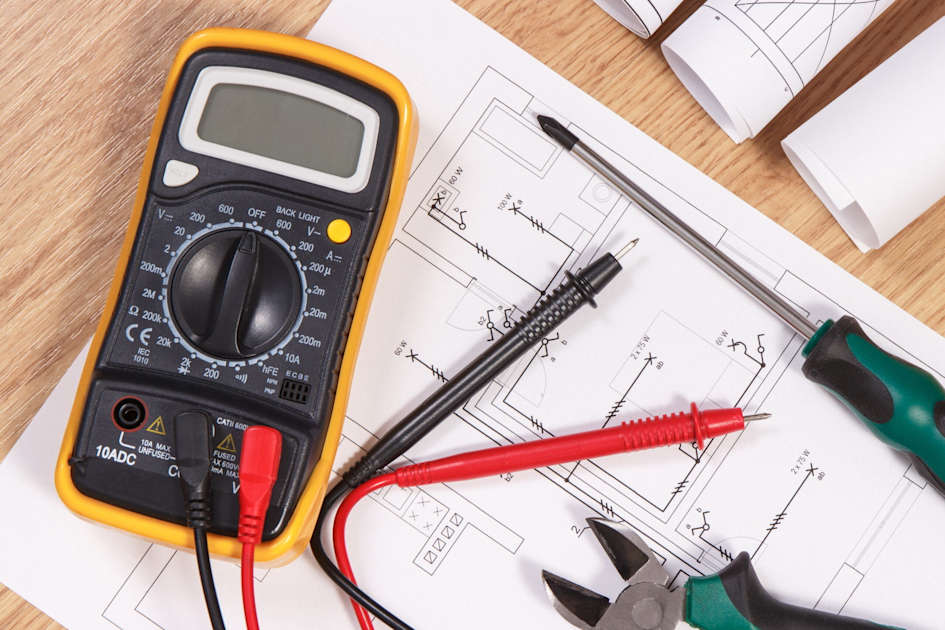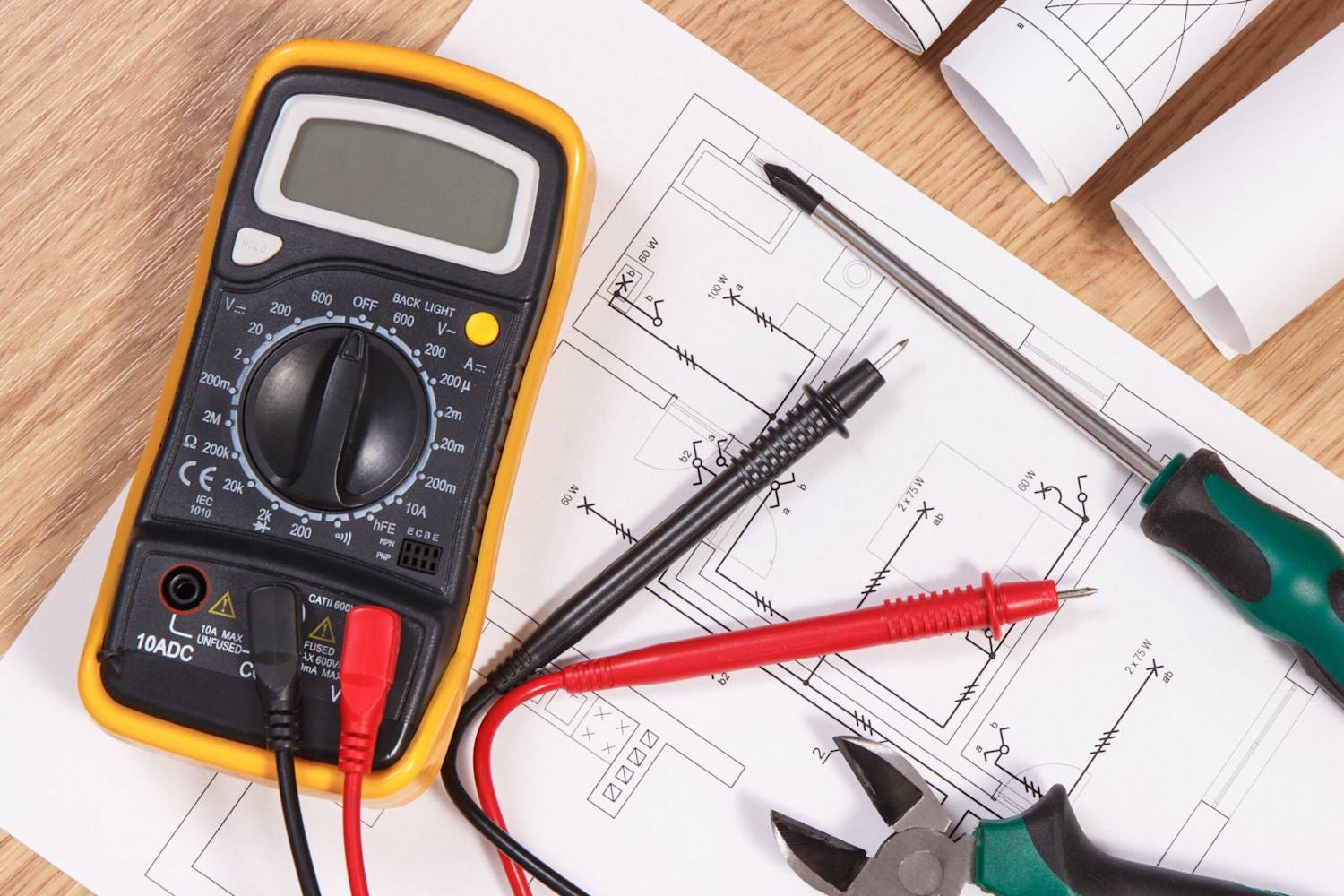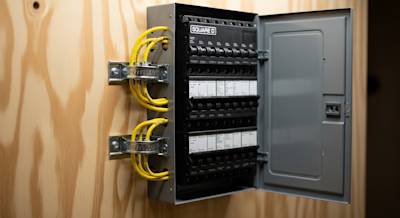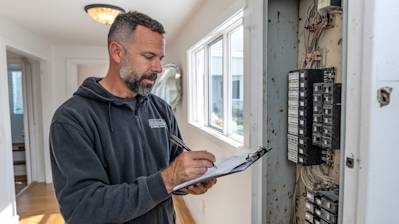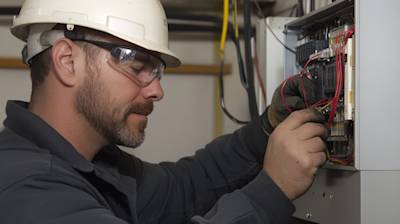The world of electrical work requires precise skills, learnt knowledge and the right set of tools. Ranging from simple screwdrivers to complex multimeters, these electrical tools are essential for both professionals and DIY enthusiasts alike. Here, we will discuss an extensive list of tools that every electrician, whether beginner or professional, should have in their toolbox. This comprehensive guide will help you understand their uses, importances and concerns related to these electrical tools.
A Comprehensive Overview of Electrical Tools
Getting to know the electrical tools you will need in your electrical projects is the first step to building a complete electrician's toolbox. Here's a list of the common electrical tools and their purposes:
Insulated Screwdrivers
Insulated screwdrivers are a must-have in every electrician's toolbox. They have an insulated handle designed to protect the user from electric shocks while working with live circuits. These screwdrivers come in different types and sizes to suit various screw heads.
Wire Strippers
Wire strippers are used to strip the insulation from the wires, allowing for easy connection and installation. They come with various sized grooves to accommodate different wire sizes.
Voltage Testers
Voltage testers, or voltage detectors, are used to ensure that there is no electrical current running through a wire or circuit before starting work. This ensures the users’ safety.
Plastic Pliers
Like insulated screwdrivers, an electrician uses insulated pliers for safety reasons. Electricians use these tools for various tasks, including cutting wires and bending wire ends.
Multimeters
Meter readers or multimeters, are an essential tool that electricians use to measure various electrical properties, including current, voltage, and resistance. They are incredibly versatile and come in both digital and analog models.
Importance of Using the Correct Electrical Tools
The appropriate use of electrical tools is not just about getting the job done. It focuses more on ensuring accuracy, efficiency and safety while performing electrical tasks. Here are some reasons why using the correct electrical tools is necessary:
-
Safety: Electrical tools are professionally designed to protect the users from any potential risks associated with electricity. With properties like insulation, these tools can prevent electric shocks, short circuits, and other electrical hazards.
-
Efficiency: Electrical tools not only make your work easier but also help you save time by performing tasks more efficiently.
-
Accuracy: With the correct electrical tools, you’d be able to execute any electrical project with accuracy and precision.
Taking Care of Your Electrical Tools
Maintenance and proper care of electrical tools play a crucial role in their longevity and your safety. Here are some tips to ensure your toolkit is always in prime condition:
-
Cleanliness: After every use, make sure to wipe off any dirt or dust from your tools. This prevents any buildup that can affect their functionality.
-
Storage: Store your electrical tools in a toolbox or a dry, controlled environment to protect them from humidity and other harmful conditions.
-
Inspection: It's important to inspect your tools before and after every use to catch any abnormalities or damage early on.
Where to Buy Electrical Tools
There are numerous places where you can get your hands on high-quality electrical tools. Some of the renowned places include:
- Hardware stores
- Online platforms such as Amazon and eBay
- Electrical supply stores
Whichever buying channel you choose, make sure you always opt for trusted brands that guarantee high-quality, robust, and safe tools.
Training to Use Electrical Tools
While having the correct tools is important, knowing how to use them properly is even more crucial. You can gain training from:
- Vocational training schools
- Online platforms such as Udemy and Coursera
- Apprenticeships
Whether you're working on a simple DIY home project or you're a professional electrician, having the right tools is necessary for the successful completion of your electrical tasks. Not only do these tools guarantee safety, but they also increase efficiency and precision in your work. Always see to it that your electrical tools are in good working condition and replace any faulty ones immediately to avoid any potential hazards.
Frequently Asked Questions About Electrical Tools
What are various types of electrical tools?
There is a multitude of electrical tools available, each designed for a specific purpose. These include, but are not limited to, multimeters, circuit testers, wire crimpers, wire strippers, soldering irons, voltage testers, and continuity testers.
Which electrical tools are essential for beginners?
For beginners, it is crucial to have a basic set of electrical tools such as a multimeter, wire strippers, screwdrivers, and wire cutters. A voltage tester is also essential for detecting if an electrical circuit is live.
What safety precautions should be taken while using electrical tools?
It's essential to always put safety first when using electrical tools. Ensure you always wear the necessary protective gear, follow all manufacturer instructions, and never try to operate unfamiliar tools without first understanding how they work. Moreover, it's vital to never work on live circuits and always check twice before proceeding.
Can I use regular tools for electrical work?
While it's possible to use some regular tools for electrical work, it's not advisable. Electrical tools are specifically designed to ensure safe handling of electricity, thereby minimising the likelihood of electrical shocks and other related accidents.
Why do some electrical tools have rubber handles?
The handles of electrical tools are often made from rubber or have rubberised coatings because rubber is a good insulator. This design feature helps to protect the user from electric shocks while handling potentially live electrical wiring or components.
What is an electrical multimeter used for?
An electrical multimeter is a versatile tool used for measuring different aspects of electricity, such as voltage, current, and resistance. They are useful for diagnosing electrical problems and making sure components are working correctly.
When and how should I use a voltage tester?
A voltage tester, also known as a voltage detector, is used to discover whether a circuit is live (has an electric charge). It should be used before interacting with any electrical system to ensure safety. Moreover, you should always follow your tool's specific instructions for accurate results.
What is the purpose of wire strippers?
Wire strippers are used to safely remove the insulating material from around the conductive metal core of an electrical wire. This is often necessary before attaching a wire to a connector, terminal, or performing a splice.
How to maintain electrical tools?
Proper maintenance of electrical tools includes regular cleaning, thorough inspection for wear and tear before and after each use, appropriate storage, and in some cases, lubrication. Refer to your tool's specific care instructions for the best practices.
Where should I store my electrical tools?
Electrical tools should be stored in a dry location that is safe from dust, excessive heat, or direct sunlight. A dedicated tool box or cabinet is ideal. It's crucial to avoid keeping them in damp places as moisture can lead to rusting or degradation of the rubber insulation.
Pros and Cons of Electrical Tools
Pros of Electrical Tools
Efficiency
-
Electrical tools increase efficiency. They are designed to perform tasks more quickly and with more precision than manual tools.
-
The use of electrical tools reduces the time it takes to complete a project. This heightened efficiency is particularly beneficial in professional settings, where time is often equated with money.
-
With electrical tools, it is also easier to do repetitive tasks. This is particularly important in manufacturing, where uniformity and consistency are essential.
Versatility
-
Many electrical tools have adjustable speeds, allowing for more versatility in their usage.
-
From drilling holes to cutting materials, electrical tools can perform a variety of functions, meaning that fewer tools are needed overall.
-
The variety of available electrical tools also means that there is usually a specialized tool for any given job, which can lead to better results.
Reliability
-
Electric tools are powered by a reliable source, electricity, which is more consistent than manual power. With electrical tools, there is little chance of the tool suddenly losing power in the middle of a task.
-
These tools are generally quite durable, given proper use and maintenance. They are usually constructed from sturdy materials that can withstand the power they generate.
Cons of Electrical Tools
Safety Concerns
-
Electric tools can be dangerous if not properly used and maintained. There's always a risk of electrical shocks, short-circuits, and other electricity-related accidents.
-
The high speed and power of electrical tools also increase the risk of injury through touching a moving part or from bits of materials being flung out during operation.
Dependency on Electricity
-
Electrical tools rely on a source of power to run. In areas where power is unreliable, this can be a significant drawback.
-
Also, in cases where electrical outlets are not readily available such as in outdoor or remote locations, the usage of these tools becomes limited.
Cost
-
Electric tools are generally more expensive than their manual counterparts. This is largely due to the cost of the components used to make them, including motors and electrical wiring.
-
They also consume electricity, which adds to their operating cost. The amount of electricity consumed will depend on the tool's power usage and the duration of use.
Noise and Vibration
-
Electric tools often produce a lot of noise when in operation, which can be a problem in residential areas or work sites with noise restrictions.
-
Vibrations from electric tools can also be a nuisance and, in extreme cases, can lead to health issues such as hand-arm vibration syndrome.
Electrical tools offer benefits in efficiency, versatility, and reliability but bear downsides with regards to safety concerns, dependency on electricity, cost, and noise levels. Understanding these factors can help in making informed decisions when choosing between electric and manual tools.
Summary
So there you have it, a brief outlook about electrical tools. These appliances have become a seamless part of our lives, making tasks easier and efficient. They assist us on daily basis, both at the domestic and commercial level - from fixing a tiny radio to setting up giant machinery. Safe and appropriate usage can save us a lot of inconvenience and possible hazards.
One thing is certain, electrical tools are now an integral part of our lives. They have transformed manual work into something that takes lesser time with improved efficiency. Whether it's drilling, cutting, sanding or more, it happens smoothly with these tools. Can you even remember the time when electrical tools weren't this accessible? It seems like a distant dream now!
Finally, there is an entire universe to explore when it comes to electrical tools. These are powerful devices designed to make our lives easier and workplaces more efficient. So, next time you see someone operating an electrical tool effortlessly, remember the science and innovation behind its existence. And also a humble suggestion, learn to operate a few if you haven't already; it's a skill worth having!
About Sagan Electric
Welcome to Sagan Electric, based in the heart of Sacramento, CA! We're your reliable, devoted neighbors ready to lend a hand with all your electric needs. Since opening our doors, we've grown by focusing on what matters - our community. We believe in strong work ethics combined with equally high-quality customer service. That's why we persist in offering unmatched electrical solutions. Your trust in us fuels our commitment to provide only top-notch services, serving as a testament to our reputation as one of the prominent electrical businesses in Sacramento. Let’s power up together!
Tags: Electrical Tools, DIY Projects, Electrician,
